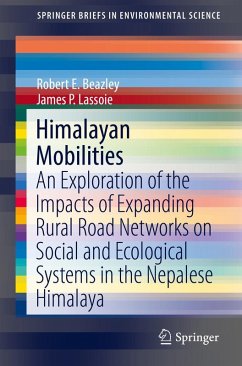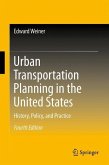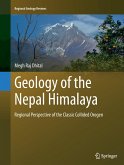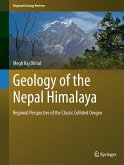The goals of this book are to update information on the effects of rural road development, both in Nepal and globally, explain the environmental, socioeconomic, and sociocultural impacts of expanding rural road networks in the Nepalese Himalaya, and to promote further studies on rural road development throughout the world based on studies and investigations performed in Nepal. Readers will learn about the history of rural road development, as well as the challenges to effectively design and construct rural roads and how these obstacles may be overcome.
Chapter one offers a global review of road development, and both the positive and negative impacts of rural road implementation. Chapter two defines mobilities within the context of coupled social and ecological systems, specifically in the Nepalese Himalaya. Chapters three through five detail the environmental, socioeconomic, and sociocultural impacts expanding rural road networks through several case studies. The concluding chapter summarizes the findings of the book, discussing the need for interdisciplinary cooperation and collaboration to avoid negative consequences. This book will be of interest to teachers, researchers, policy makers, and development organizations.
Chapter one offers a global review of road development, and both the positive and negative impacts of rural road implementation. Chapter two defines mobilities within the context of coupled social and ecological systems, specifically in the Nepalese Himalaya. Chapters three through five detail the environmental, socioeconomic, and sociocultural impacts expanding rural road networks through several case studies. The concluding chapter summarizes the findings of the book, discussing the need for interdisciplinary cooperation and collaboration to avoid negative consequences. This book will be of interest to teachers, researchers, policy makers, and development organizations.
"Himalayan Mobilities is a timely book. Co-authored by Robert Beazley and James Lassoie, it explores the construction of Himalayan roads and the profound transformation they continue to trigger throughout rural Nepal. ... For anybody working on infrastructure in Asia or in similarly mountainous terrain elsewhere, the book is a very helpful source of information." (Martin Saxer, Pacific Affairs, Vol. 92 (1), March, 2019)
"This short book gives a concise overview of the development of road networks in the Nepal Himalaya and its environmental, socioeconomic, and sociocultural implications. It highlights both the economic significance and negative influences that roads can have for mountain communities ... . It is not only a welcome addition to the library of scholars committed to mountain research, but it is also appropriate for undergraduate and graduate students as well as for planning professionals." (Udo Schickhoff, Mountain Research and Development, Vol. 39 (1), February, 2019)
"This short book gives a concise overview of the development of road networks in the Nepal Himalaya and its environmental, socioeconomic, and sociocultural implications. It highlights both the economic significance and negative influences that roads can have for mountain communities ... . It is not only a welcome addition to the library of scholars committed to mountain research, but it is also appropriate for undergraduate and graduate students as well as for planning professionals." (Udo Schickhoff, Mountain Research and Development, Vol. 39 (1), February, 2019)








